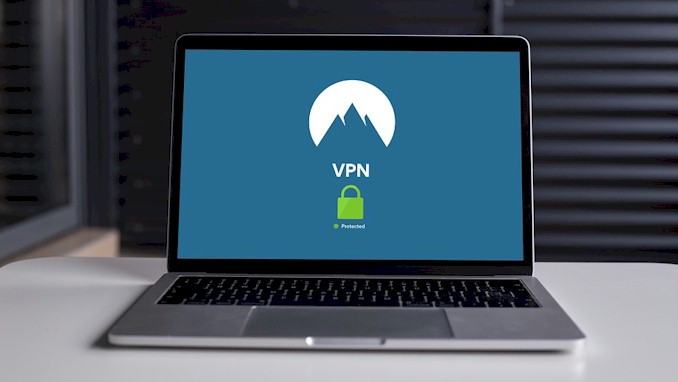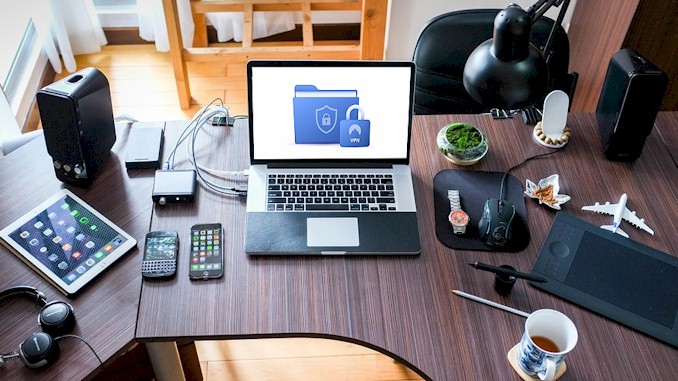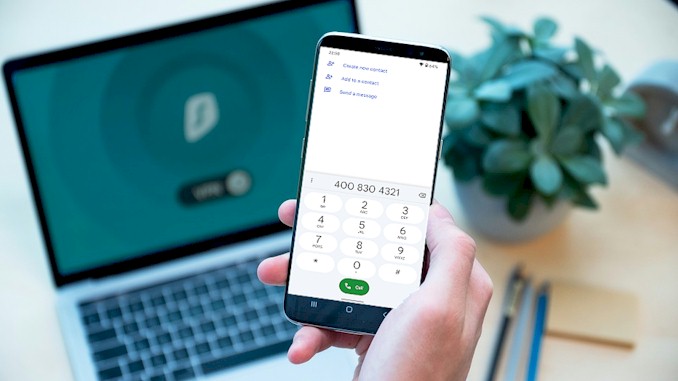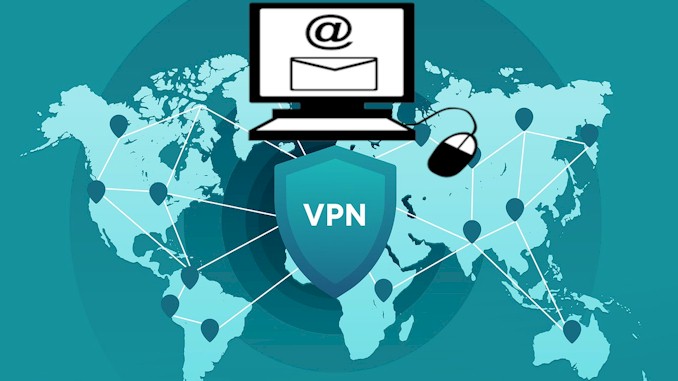VPN Legal or Illegal: A Comprehensive Guide
Hello and welcome to my blog! As an expert in internet security and privacy, I’m often asked the question: “Is VPN illegal?” With so much misinformation and confusion surrounding the use of Virtual Private Networks (VPNs), it’s understandable why many people are hesitant to use them. However, as someone who has extensively researched this topic, I can confidently say that VPNs are legal in most countries, and are actually recommended for online security and privacy. In this post, I’ll provide you with the information you need to know about the legality of VPNs, so you can make an informed decision about whether or not to use one.
VPNs are generally legal, except in countries that restrict their use. It’s crucial to research your country’s laws and choose a reputable provider. Using a VPN for illegal activities is still illegal. If used properly, VPNs are a legal and effective way to enhance online privacy and security.
If you’re interested in learning more about VPNs and how they can benefit you, then you’ve come to the right place. In the following sections, I’ll dive deeper into the legality of VPNs and explore the potential risks and benefits of using one. Whether you’re new to the world of VPNs or a seasoned user, I’m confident that you’ll find the information in this post valuable and informative. So, keep reading to learn everything you need to know about VPNs and their legal status.
The Legality of VPNs: What You Need to Know
Virtual Private Networks (VPNs) have become increasingly popular among internet users in recent years. They offer a way to encrypt your internet traffic and protect your online privacy from prying eyes. However, many people are still unsure whether VPNs are legal or not. In this section, we’ll explore the legal status of VPNs and provide you with the information you need to know.
Firstly, it’s important to note that the legality of VPNs varies from country to country. In most countries, VPNs are perfectly legal and are widely used by individuals and businesses alike. However, there are a few countries that heavily restrict or even ban the use of VPNs. For example, countries like China, Iran, and Russia have strict laws regarding the use of VPNs, and individuals caught using them may face fines or even imprisonment.
Despite these restrictions, the use of VPNs has become more widespread in these countries, particularly among those who seek to bypass government censorship and access restricted content. In response, some governments have ramped up their efforts to crack down on VPN use. For example, in China, the government has implemented sophisticated technology to block VPNs and has arrested individuals for using them.
Despite these restrictions, the majority of internet users can use VPNs without fear of legal repercussions. In fact, VPNs are often used by businesses and individuals to enhance their online security and privacy. However, it’s important to remember that using a VPN for illegal activities, such as hacking or accessing restricted content, is still illegal, regardless of whether or not a VPN is used. Therefore, it’s crucial to use a reputable VPN provider and to abide by your country’s laws and regulations when using a VPN.
Understanding VPN Laws and Regulations in Your Country
As we mentioned in the previous section, the legal status of VPNs varies from country to country. It’s crucial to research the laws and regulations in your country before using a VPN to ensure that you’re not breaking any laws. In this section, we’ll dive deeper into the different laws and regulations surrounding VPN use in various countries around the world.
In the United States, VPNs are generally legal and widely used. However, it’s worth noting that the US government has the power to subpoena VPN providers for user data. This means that if you’re using a VPN for illegal activities, the authorities may be able to obtain your data from the VPN provider. Except the VPN provider doesn’t have any data of their customers, such as ExpressVPN, NordVPN and Surfshark.
In the United Kingdom, VPNs are also legal and widely used. However, the government has implemented a law called the Investigatory Powers Act, which requires VPN providers to log user data and provide it to the government upon request.
In Europe, the legal status of VPNs varies from country to country. In some countries, such as Germany and France, VPNs are legal but are subject to certain restrictions. For example, in Germany, VPN providers are required to store user data for up to 10 weeks.
In Asia, VPN laws and regulations are much stricter. In China, VPNs are heavily restricted, and individuals caught using them may face fines or imprisonment. In Iran, the use of VPNs is illegal, and individuals caught using them may face fines or even imprisonment.
In the Middle East, the legal status of VPNs also varies. In Saudi Arabia, for example, the use of VPNs is illegal, and individuals caught using them may face fines or imprisonment. In the United Arab Emirates, the use of VPNs is legal, but the government has implemented laws that restrict their use.
The Legal Gray Area Surrounding VPNs Explained
Virtual Private Networks (VPNs) are powerful tools that help protect the online privacy and security of their users. By encrypting online activities, they make it difficult for ISPs and governments to track, monitor, or control what users do online. This level of anonymity can be especially important in countries with oppressive governments that seek to exert control over their citizens.
VPNs also help mask users’ real location, making it seem like they are browsing from another country entirely. However, despite their many benefits, VPNs exist in a legal gray area. While VPNs are just tools and not inherently illegal, the decision to ban them or not is up to each country’s individual laws and regulations.
Governments that choose to restrict VPNs often do so out of fear of losing control over their citizens. By using a VPN, people can access websites and information that may be blocked by their government. This newfound freedom can be threatening to those in power.
However, in countries with more liberal laws, VPNs are legal and widely used. It’s important to research the legal status of VPNs in your country before using them to ensure you are not breaking any laws. In some cases, the use of VPNs may be illegal, while in others, there may be restrictions in place.
In conclusion, while VPNs are incredibly useful tools for protecting online privacy and security, their legal status is a complex and ever-evolving issue. Understanding the laws and regulations in your country regarding VPN use is essential to avoid any legal complications.
Understanding the Legal Implications of VPN Use
Virtual Private Networks (VPNs) are powerful tools that offer increased online security and privacy. However, it’s important to note that VPNs are just tools, and their legality is not the issue; rather, it’s the activities that you engage in with a VPN that could potentially be illegal.
Just like owning a weapon is not illegal, but using it to commit a crime is, using a VPN to engage in certain activities could be illegal. Some activities that can be illegal, whether you use a VPN or not, include:
Illegal file sharing – While file sharing is not necessarily illegal, sharing files that you don’t have permission to share or that are protected by copyright is illegal. This includes sharing commercial software, music, and videos that you don’t own.
Hacking – Unauthorized access to digital platforms, services, or devices is illegal. Whether you use a VPN or not, hacking is a crime. Using a VPN to conceal your identity while committing a cybercrime does not make it legal.
Restricted materials – Certain types of materials, such as illegal pornography, confidential information that you don’t own, and restricted financial information, are illegal to possess, trade, or share. Using a VPN to hide your activities does not make them legal.
Cyberstalking – Harassing or stalking someone online is illegal almost everywhere. While a VPN can help you remain anonymous, it does not make your actions legal. Cyberstalking is a serious offense, and using a VPN to cover your tracks can lead to even more severe consequences.
VPNs are powerful tools that can help protect your online privacy and security. However, it’s important to understand that using a VPN does not give you immunity to engage in illegal activities. It’s crucial to use VPNs responsibly and ensure that the activities you engage in are legal, whether you use a VPN or not.
How VPN Bans are Enforced
Countries have various ways of enforcing VPN bans, ranging from legal frameworks to technological measures.
Some countries require VPN services operating in their territories to register with the government, but such requirements come with conditions that render VPNs useless for privacy.
In some instances, governments use technologies like Deep Packet Inspection to monitor VPN traffic, making it difficult for users to remain anonymous.
Deterrent measures are also used to prevent VPN usage, such as the threat of jail time or fines for those caught using VPN services without authorization.
The implementation of these measures, however, can be complex and controversial, as they may infringe on individuals’ privacy and freedom of expression. It is important to note that while some countries may have banned VPN usage, others allow it, and some have no regulations at all.
Legality of Media Streaming With VPNs
Streaming media content with a VPN is a widely debated topic, but the answer to whether it is legal or not depends on where you are and the platform’s licensing agreements. Generally speaking, using a VPN to access legitimate streaming services is not illegal, but it may violate the platform’s terms of use. For example, streaming giant Netflix has been known to crack down on VPN usage by blocking users who try to access content outside of their region. While VPNs are not banned in most countries, there may be instances where using them to stream content could put you at risk of violating local laws. It’s always best to check your local laws and the streaming service’s terms of use before using a VPN to access media content.
Overall, it’s important to research the laws and regulations in your country before using a VPN to ensure that you’re not breaking any laws. While VPNs are generally legal, there are some countries that heavily restrict or even ban their use. By understanding the laws and regulations surrounding VPN use in your country, you can make an informed decision about whether or not to use a VPN.
Your Right to Private Browsing
In today’s world, digital privacy is becoming increasingly important. Companies and governments alike are looking to gather more data about individuals, often without their consent or knowledge. This makes it essential that you understand your right to reasonable digital privacy. While many countries have traditionally been seen as liberal and privacy-respecting, they are now beginning to relax restrictions on data gathering and use. As a result, it’s important to be aware of what data you are sharing and who can access it.
Using a VPN can help protect your privacy and keep your digital activity hidden from prying eyes. However, it’s important to understand that not all VPNs are created equal. Before choosing a VPN, it’s important to carefully read the fine print and understand what data the provider is collecting and how they’re using it. For example, a VPN based in the United States may be subject to data retention laws, which could impact their “no-logging” claims.
Despite these concerns, it’s important to remember that you do have a right to private browsing. With a quality VPN and careful attention to the details of their policies, you can protect your digital privacy and browse the web without fear of being monitored or tracked. By taking the time to understand your rights and choosing your tools wisely, you can enjoy a greater degree of online freedom and privacy.
10 Countries That Ban VPN
When it comes to discussions surrounding VPNs and privacy, what we are truly talking about is the fundamental right to freedom. It is a country where people’s voices can be heard and respected and where the use of VPNs is lawful. You will notice that these types of countries are typically democratic, promoting and upholding the values of individual rights and autonomy. Therefore, when we talk about VPNs, we are really talking about safeguarding and protecting the core tenets of democracy.
It’s common knowledge that VPNs are banned in regions where people’s voices are silenced. This is because dictatorial regimes are more interested in exploiting their people rather than granting them the rights they deserve. They fear any technology that can potentially empower individuals and limit their control. As such, they aim to stifle the free flow of information and maintain a state of oppressive authority. In short, where VPNs are illegal, it’s a sign that the governing body has something to hide and is afraid of its own people.
If you’re curious about which countries prohibit VPN usage, all you have to do is determine if it’s a democratic or dictatorial regime. This information can help you navigate VPN-related matters during your travels. To make things easier, I’ve compiled a list of ten nations across the globe where VPNs are prohibited, along with some useful information about VPN usage that you may find helpful.
1. China
Despite China’s opening up to the global economy, it still retains a dictatorial regime that practices strict regulations on its populace. In fact, the integration of a single-party system has resulted in even harsher restrictions on personal freedoms.
To better understand the VPN issue in China, it’s important to note that the country has long prohibited access to many foreign websites and applications, including the likes of Facebook and Google. Since VPNs can bypass these restrictions, the Chinese government has made their use illegal, except for a select few government-approved service providers. These providers, however, are often beholden to the government’s whims and are rarely private, independent companies.
It’s regrettable that VPNs struggle to function optimally in China due to the constantly evolving nature of the Great Firewall. However, all hope is not lost, as there’s a workaround solution available through OpenVPN, Wireguard, or IKEv2 manual setup. This approach enables VPNs like ExpressVPN, Surfshark, VPN.ac, and NordVPN to connect to their networks from within China.
Furthermore, by connecting to their VPN servers in the US and UK, you can even watch streaming services such as Netflix, HBO Max, Disney Plus, and Paramount Plus, BBC iPlayer, among others, for your entertainment pleasure.
2. Russia
Although Russia has transformed into a complex federation following the collapse of the Soviet state, it still adheres to socialist principles in many ways. This has been particularly evident under the leadership of Vladimir Putin, who has held a firm grip on the country since his rise to power in 1999.
In November 2017, Russia implemented a law that banned VPNs, leading to concerns about the erosion of digital freedom within the country. This measure was just one in a series of steps aimed at increasing the government’s control over the internet.
Recently, foreign VPN providers operating in Russia have been compelled to comply with government-mandated blacklists of certain websites. Consequently, some providers, such as TorGuard, have ceased their services within Russia altogether.
3. Belarus
Belarus is a peculiar case as it has a constitution that prohibits censorship but multiple laws that enforce it. Like many other countries attempting to restrict digital freedom, it has taken advantage of the trend of labeling content as “fake news” as a means to an end.
In 2016, the country took the decisive step of prohibiting all internet anonymizers, including not just VPNs and proxies, but also Tor, which routes user internet traffic through its global network of volunteer nodes to enhance privacy.
Unfortunately, digital freedom in Belarus has only deteriorated over time. In addition to creating obstacles to access and blocking the right to free speech, the government has strictly imposed these regulations on its own people.
4. North Korea
It comes as no surprise that North Korea has banned the use of VPNs, given its notoriously authoritarian government and strict regulations on its citizens. The country ranks at the bottom of the Press Freedom Index, published annually by Reporters Without Borders.
While reports suggest that some privileged individuals in the country are still able to use VPNs and Tor for specific purposes, it’s unclear how much this ban affects the wider population. Internet access and cell phone service are not widely available in North Korea, so the ban on VPNs may not be a significant concern for most citizens.
5. Turkmenistan
Turkmenistan is a country that is notorious for its tight control over all forms of media. Not only are no foreign media outlets allowed in, but domestic media is also heavily regulated. The government’s grip on information is so strong that the use of VPNs is strictly prohibited.
Despite Turkmenistan’s move towards becoming a modern presidential republic, it still maintains its socialist roots and is under the rule of a tightly controlled junta. Human rights abuses are rampant, making the country one of the most repressive in the world.
In Turkmenistan, citizens are left with little access to uncensored information and the government’s stranglehold on media leaves them in a state of perpetual isolation.
6. Uganda
Out of all the countries that restrict VPN usage, Uganda stands out for a unique reason. In 2018, the government introduced a tax on social media sites, which many users saw as unnecessary. The tax was a nominal fee of 200 Ugandan Shillings, roughly equivalent to $0.05. To evade the tax, some users resorted to using VPNs, which allowed them to access social media without paying the tax.
As a result, the government clamped down on VPNs and instructed ISPs to block VPN users. However, due to limited resources, Uganda has not been able to enforce a complete ban on VPNs, and many users in the country continue to use them. While Uganda’s reasons for restricting VPNs may be different from those of other countries on this list, the outcome is still the same – limitations on digital freedom.
7. Iraq
During the war with ISIS, Iraq implemented internet bans and restrictions as part of its defense strategy. These restrictions included a ban on VPNs. However, the situation has changed, and ISIS is not as big a threat as it used to be.
Iraq’s legal framework is complex and often conflicting, making it challenging to determine if VPN use is currently allowed. Despite constitutional guarantees against censorship since 2005, the country has laws that aim to stifle free expression, much like Belarus. As a result, using a VPN in Iraq can be risky.
8. Turkey
Turkey, with its history of censorship, has recently taken the controversial decision to outlaw and block VPNs in the country. This is part of a broader campaign aimed at controlling access to selected information and platforms, tightening its already strict grip on media channels.
Over the last decade, the ruling junta has continued to expand its reach over media, leaving only state-approved propaganda outlets in operation. Today, Turkey has blocked thousands of websites and platforms, including social media channels, cloud storage platforms, and even some content delivery networks.
9. UAE
The UAE’s stance on VPNs has become increasingly strict over time. Initially, their laws simply discouraged the use of VPNs, but they have since been amended to make them illegal. This means that anyone caught using a VPN in the country can face hefty fines of at least 500,000 dirhams, or around $136,129.
The government’s justification for this is that VPNs can be used to access illegal content, which is considered a major issue in the UAE. However, what the country considers to be illegal can be somewhat confusing. For example, popular communication platforms like Skype and Whatsapp are banned.
Despite this, there is still some flexibility in the regulations. If you have a legitimate reason for using a VPN, such as for work or personal security, you may still be able to use it. Nonetheless, the overall climate in the UAE is one of tight regulation and censorship, with the government carefully controlling what its citizens can access online.
10. Oman
When it comes to online communication in Oman, the use of any type of encryption is explicitly illegal. However, enforcing this law would require blocking or making illegal access to websites that use SSL, which would render most of the internet inaccessible. Therefore, the law is virtually unenforceable, and there isn’t much information available on the situation. It’s a strange and confusing situation, to say the least.







